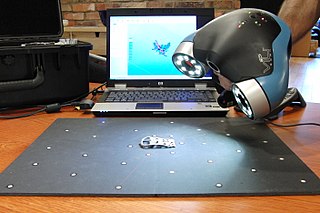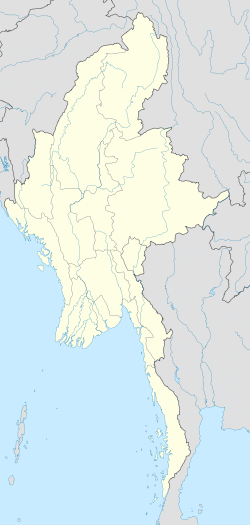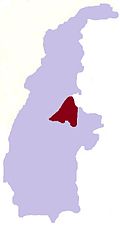
Duke Nukem 3D is a first-person shooter video game developed by 3D Realms. It is a sequel to the platform games Duke Nukem and Duke Nukem II, published by 3D Realms.

A platformer is a sub-genre of action video games in which the core objective is to move the player character between points in an environment. Platform games are characterized by levels with uneven terrain and suspended platforms of varying height that require jumping and climbing to traverse. Other acrobatic maneuvers may factor into the gameplay, such as swinging from vines or grappling hooks, jumping off walls, gliding through the air, or bouncing from springboards or trampolines.

Wolfenstein 3D is a first-person shooter video game developed by id Software and published by Apogee Software and FormGen. Originally released on May 5, 1992, for DOS, it was inspired by the 1981 Muse Software video game Castle Wolfenstein, and is the third installment in the Wolfenstein series. In Wolfenstein 3D, the player assumes the role of Allied spy William "B.J." Blazkowicz during World War II as he escapes from the Nazi German prison Castle Wolfenstein and carries out a series of crucial missions against the Nazis. The player traverses each of the game's levels to find an elevator to the next level or kill a final boss, fighting Nazi soldiers, dogs, and other enemies with a knife and a variety of guns.

Computer-aided design (CAD) is the use of computers to aid in the creation, modification, analysis, or optimization of a design. This software is used to increase the productivity of the designer, improve the quality of design, improve communications through documentation, and to create a database for manufacturing. Designs made through CAD software help protect products and inventions when used in patent applications. CAD output is often in the form of electronic files for print, machining, or other manufacturing operations. The terms computer-aided drafting (CAD) and computer-aided design and drafting (CADD) are also used.

Stereoscopy is a technique for creating or enhancing the illusion of depth in an image by means of stereopsis for binocular vision. The word stereoscopy derives from Greek στερεός (stereos) 'firm, solid' and σκοπέω (skopeō) 'to look, to see'. Any stereoscopic image is called a stereogram. Originally, stereogram referred to a pair of stereo images which could be viewed using a stereoscope.
3D films are motion pictures made to give an illusion of three-dimensional solidity, usually with the help of special glasses worn by viewers. They have existed in some form since 1915, but had been largely relegated to a niche in the motion picture industry because of the costly hardware and processes required to produce and display a 3D film, and the lack of a standardized format for all segments of the entertainment business. Nonetheless, 3D films were prominently featured in the 1950s in American cinema, and later experienced a worldwide resurgence in the 1980s and 1990s driven by IMAX high-end theaters and Disney-themed venues. 3D films became increasingly successful throughout the 2000s, peaking with the success of 3D presentations of Avatar in December 2009, after which 3D films again decreased in popularity. Certain directors have also taken more experimental approaches to 3D filmmaking, most notably celebrated auteur Jean-Luc Godard in his film Goodbye to Language.

3D Realms Entertainment ApS is a video game publisher based in Aalborg, Denmark. Scott Miller founded the company in his parents' home in Garland, Texas, in 1987 as Apogee Software Productions to release his game Kingdom of Kroz. In the late 1980s and early 1990s, the company popularized a distribution model where each game consists of three episodes, with the first given away free as shareware and the other two available for purchase. Duke Nukem was a major franchise created by Apogee to use this model, and Apogee published Commander Keen and Wolfenstein 3D the same way.

TheDudley Boyz are an American professional wrestling tag team that consisted of kayfabe half-brothers Bubba Ray Dudley and D-Von Dudley. The team was also joined by various Dudley family members, notably Spike Dudley and former valet Stacy Keibler. They are best known for their time in Extreme Championship Wrestling (ECW) where Joel Gertner was their manager. They are also well known for their tenure in the World Wrestling Federation and Total Nonstop Action Wrestling. They are considered one of the major teams that revived tag team wrestling during the Attitude Era and have been described as the greatest and most decorated tag team in professional wrestling history.

3D printing or additive manufacturing is the construction of a three-dimensional object from a CAD model or a digital 3D model. It can be done in a variety of processes in which material is deposited, joined or solidified under computer control, with the material being added together, typically layer by layer.

Google Earth is a web and computer program that renders a 3D representation of Earth based primarily on satellite imagery. The program maps the Earth by superimposing satellite images, aerial photography, and GIS data onto a 3D globe, allowing users to see cities and landscapes from various angles. Users can explore the globe by entering addresses and coordinates, or by using a keyboard or mouse. The program can also be downloaded on a smartphone or tablet, using a touch screen or stylus to navigate. Users may use the program to add their own data using Keyhole Markup Language and upload them through various sources, such as forums or blogs. Google Earth is able to show various kinds of images overlaid on the surface of the Earth and is also a Web Map Service client. In 2019, Google revealed that Google Earth now covers more than 97 percent of the world, and has captured 10 million miles of Street View imagery.

3D scanning is the process of analyzing a real-world object or environment to collect three dimensional data of its shape and possibly its appearance. The collected data can then be used to construct digital 3D models.

3D computer graphics, sometimes called CGI, 3-D-CGI or three-dimensional computer graphics, are graphics that use a three-dimensional representation of geometric data that is stored in the computer for the purposes of performing calculations and rendering digital images, usually 2D images but sometimes 3D images. The resulting images may be stored for viewing later or displayed in real time.

Computer graphics deals with generating images and art with the aid of computers. Computer graphics is a core technology in digital photography, film, video games, digital art, cell phone and computer displays, and many specialized applications. A great deal of specialized hardware and software has been developed, with the displays of most devices being driven by computer graphics hardware. It is a vast and recently developed area of computer science. The phrase was coined in 1960 by computer graphics researchers Verne Hudson and William Fetter of Boeing. It is often abbreviated as CG, or typically in the context of film as computer generated imagery (CGI). The non-artistic aspects of computer graphics are the subject of computer science research.

A first-person shooter (FPS) is a video game centered on gun fighting and other weapon-based combat seen from a first-person perspective, with the player experiencing the action directly through the eyes of the main character. This genre shares multiple common traits with other shooter games, and in turn falls under the action games category. Since the genre's inception, advanced 3D and pseudo-3D graphics have proven fundamental to allow a reasonable level of immersion in the game world, and this type of game helped pushing technology progressively further, challenging hardware developers worldwide to introduce numerous innovations in the field of graphics processing units. Multiplayer gaming has been an integral part of the experience, and became even more prominent with the diffusion of internet connectivity in recent years.

In 3D computer graphics, 3D modeling is the process of developing a mathematical coordinate-based representation of a surface of an object in three dimensions via specialized software by manipulating edges, vertices, and polygons in a simulated 3D space.

Paint 3D is a raster graphics and 3D computer graphics application which is a refresh of Microsoft Paint. It is one of several 3D modeling and printing applications introduced or improved with the Windows 10 Creators Update, including View 3D, Windows Mixed Reality, Holograms, along with the CAD programs 3D Builder and 2D Builder.














